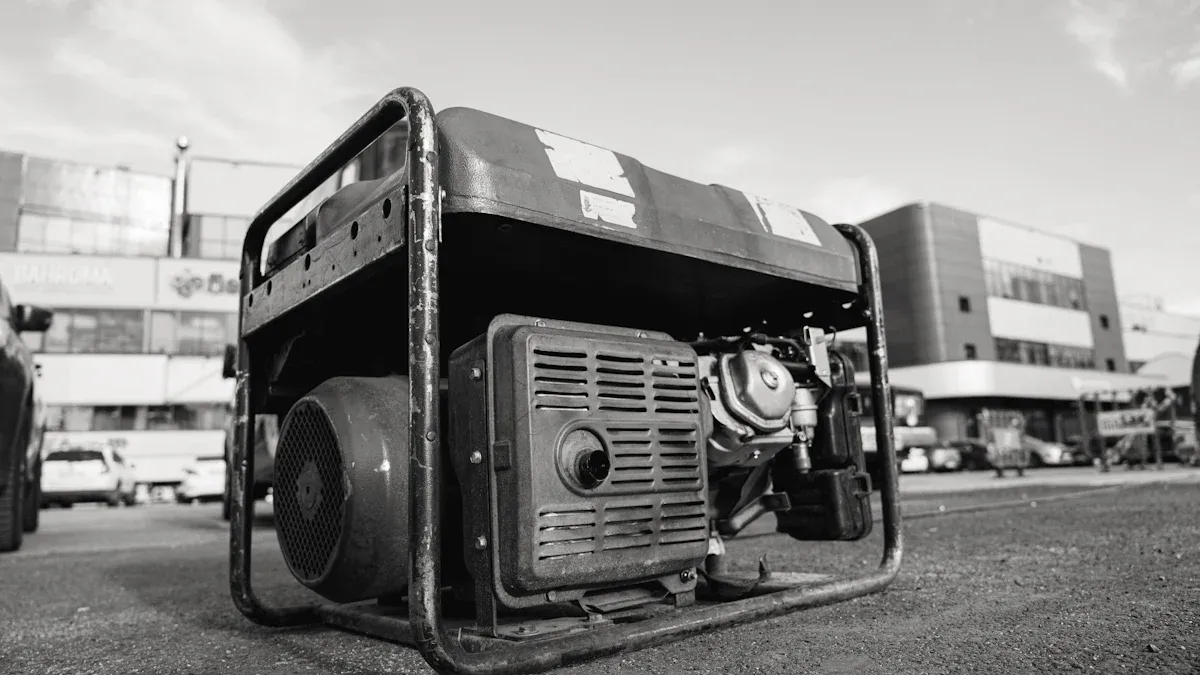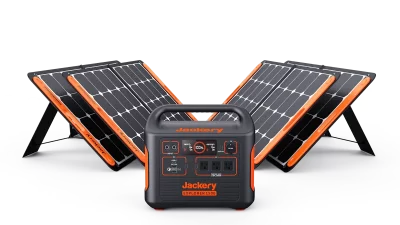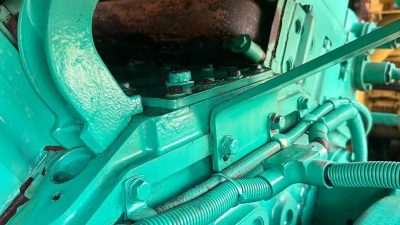
The Second-Hand Generator Market offers buyers and sellers significant cost savings, quick access to equipment, and eco-friendly options. Buyers should check generator condition, age, and service records. They must consider warranty limits, brand reputation, and fuel type. Seller credibility and regulatory compliance also play critical roles. Balancing lower prices with potential risks ensures reliable power solutions.
Key Takeaways
Buying used generators saves money and offers quick access to reliable power when needed.
Checking a generator’s age, condition, and service history helps avoid costly repairs and ensures better performance.
Choosing trusted sellers and verifying their expertise protects buyers from fraud and poor-quality equipment.
Used generators support the environment by reducing waste and lowering carbon emissions through hybrid and renewable options.
Thorough inspections, load testing, and clear documentation are essential steps before buying or selling a used generator.
Second-Hand Generator Market Opportunities

Cost Savings
The Second-Hand Generator Market gives buyers a chance to save money. Used generators often cost much less than new ones. This lower upfront cost helps businesses and individuals manage budgets more effectively. The table below shows typical price ranges for different types of generators:
Generator Type | Upfront Cost Range | Notes on Cost Characteristics |
|---|---|---|
Gasoline Generators | $300 to $2,500 | Lowest upfront cost, portable use |
Diesel Generators | $500 to $10,000 | Variable cost, depends on power capacity |
Solar Generators | $1,000 to $5,000 | Higher cost, no fuel expenses, long lifespan |
Natural Gas Generators | $2,000 to $10,000 | Higher cost, steady fuel supply |
Propane Generators | $500 to $6,000 | Mid-range cost, cleaner fuel than diesel |
Buyers in the Second-Hand Generator Market can often find gasoline and diesel models at the lowest prices. This cost advantage makes used generators attractive for those who need reliable power but want to avoid high expenses.
Fast Availability
Used generators are usually available for immediate purchase. New units may require long lead times due to manufacturing or shipping delays. The Second-Hand Generator Market allows buyers to respond quickly to urgent power needs. Fast access to equipment supports businesses during emergencies or unexpected demand spikes. Sellers can also benefit by moving inventory quickly and freeing up capital.
Sustainability
Choosing a used generator supports environmental goals. Reusing equipment reduces waste and supports the circular economy. Many buyers now look for ways to lower their carbon footprint. The following points highlight the environmental benefits:
Hybrid energy systems with renewables cut diesel use and CO2 emissions.
These systems lower the total environmental impact of power generation.
Hybrid setups reduce the need for large batteries and fossil fuels.
Renewable hybrids produce little to no toxic emissions.
Replacing diesel generators with solar and storage can save millions and cut pollution.
These changes help meet net zero carbon goals and improve public health.
Investment Flexibility
The Second-Hand Generator Market offers flexibility. Buyers can adjust their assets as power needs change. They can upgrade, downgrade, or switch generator types without large financial losses. This flexibility supports business growth and helps manage risk. The market continues to grow as more organizations seek adaptable and cost-effective power solutions.
Key Considerations
Condition & Age
Buyers should always check the condition and age of a used generator before making a purchase. Older generators often show signs of wear, which can affect performance and reliability. Studies from organizations like the U.S. Department of Energy and the National Renewable Energy Laboratory highlight the importance of tracking generator age and condition. These studies recommend monitoring run hours and exhaust temperature to assess health. Preventive maintenance programs help extend the life of generators and improve performance.
Aging generators tend to lose efficiency and become more expensive to operate. For example, after six years, the amount of energy not supplied increases by about 8%, and operation and maintenance costs rise by around 12%. Efficiency and power output also drop as generators age. These trends show why buyers should consider both the age and current condition of any unit in the Second-Hand Generator Market.
Key points to check:
Visible signs of wear or corrosion
Age of the generator (years since manufacture)
Any history of major repairs or part replacements
Usage Hours
The number of hours a generator has run gives a clear picture of its remaining lifespan. High usage hours often mean more wear on internal parts. Industry experts, including the U.S. Army Office of Energy Initiatives, recommend regular tracking of run hours as part of monthly testing. Generators with lower usage hours usually offer better reliability and longer service life. Buyers should ask for detailed records of operating hours and compare them to the expected lifespan for that model.
Service History
A complete service history is essential for understanding how well a generator has been maintained. Maintenance records should include logs, receipts, and photos of all work performed. The U.S. Department of Defense and the National Fire Protection Association stress the value of preventive and predictive maintenance. Well-documented service history shows that the generator received regular oil changes, inspections, and part replacements. This reduces the risk of unexpected breakdowns.
Evidence Aspect | Description |
|---|---|
Maintenance Proof | Warranty claims require proof of maintenance, such as logs and receipts. |
Maintenance Schedule | Owner’s manual lists tasks and intervals (oil changes, inspections, etc.). |
Documentation Tips | Detailed logs and photos help ensure warranty coverage and avoid disputes. |
Use of Genuine Parts | Using genuine parts is recommended; aftermarket parts may risk coverage. |
Warranty Limits
Most used generators come with limited or no warranty. Buyers should read the warranty terms carefully. Some warranties require proof of regular maintenance and may only cover certain parts. The Magnuson-Moss Warranty Act protects buyers by stating that warranties cannot be voided just for using non-authorized dealers, as long as maintenance is documented. However, using non-genuine parts that cause damage can still void coverage. Buyers should keep all receipts and records to support any warranty claims.
Evidence Aspect | Description |
|---|---|
Warranty Contract Terms | Maintenance must be “appropriate”; tune-ups “should” be done by dealers. |
Proof of Maintenance | Receipts, logs, and photos recommended to prove proper care. |
Warranty Reliability | Coverage depends on manufacturer reputation and documentation. |
Brand & Fuel Type
Brand and fuel type play a big role in generator performance and operating costs. Some brands, like Brand X, are known for better fuel efficiency and durability due to larger cylinder displacement-to-BHP ratios. Diesel generators often provide the best fuel efficiency at full load, but fuel consumption remains a major cost. Engines running at 1,200 rpm last longer than those at 1,800 rpm. Buyers should avoid oversizing generators, as this can reduce fuel efficiency. Integrated electronic governors and management systems improve control and protection.
Aspect | Details |
|---|---|
Brand Comparison | Some brands offer better fuel efficiency and durability. |
Fuel Type Impact | Diesel is efficient at full load; fuel costs are significant. |
Engine Speed | 1,200 rpm engines last longer than 1,800 rpm units. |
Overload Capacity | Most sets have a 10% overload capacity for reliability. |
Maintenance | Regular oil changes and quality parts reduce downtime. |
Seller Credibility
Choosing a credible seller protects buyers from fraud and poor-quality equipment. Buyers should check the seller’s expertise and ask about their maintenance procedures. Certified technicians and proper testing equipment signal a trustworthy seller. A visual inspection can reveal mechanical wear, cracks, or corrosion. Buyers should request a load test to check generator performance and output. Professional dealers with certified staff and testing facilities offer more reliability than brokers or unverified sellers.
Ask about the seller’s maintenance knowledge and technician certifications.
Inspect for mechanical wear, cracks, and corrosion.
Request a load test to verify performance.
Prefer professional dealers over brokers or unverified sellers.
Compliance
Generators must meet local regulations and standards. Buyers should check that the generator complies with emissions, noise, and safety rules. The NFPA 110 Standard for Emergency and Standby Power Systems sets key requirements for maintenance and reliability. Matching the generator’s specifications—such as brand, fuel type, and output—to operational needs and legal standards ensures safe and legal operation. Non-compliant units can lead to fines or operational shutdowns.
Tip: Always verify compliance documents and certifications before finalizing a purchase in the Second-Hand Generator Market.
Buying & Selling Tips

Inspection & Testing
A thorough inspection and testing process helps buyers and sellers avoid costly surprises. Buyers should check for visible damage, such as cracks, rust, or worn parts. Visual inspections and nondestructive examination techniques can reveal hidden issues. Load testing at no less than 30% of the generator’s rating under operating conditions ensures the unit performs as expected. Cold starts during testing verify operational readiness. Written logs of inspections, tests, and repairs should be available and maintained for at least three years. Two or more people should know where these records are kept. Following NFPA 110 standards for maintenance and testing schedules increases reliability and safety. Temperature sensors and core monitors can detect abnormal heat, signaling potential problems. Combining regulatory compliance, operational testing, and advanced monitoring ensures a dependable generator.
Tip: Always request a final walkthrough checklist to confirm all inspection issues are resolved before closing a deal.
Price Negotiation
Effective negotiation benefits both buyers and sellers. Step-by-step checklists and conversation guides help prepare for discussions. Buyers should use maintenance records and inspection results to support their position. Sellers who address inspection issues, such as making repairs before listing, often achieve smoother transactions. Escrow services can protect both parties by holding funds until all terms are met. Open communication and clear documentation reduce disputes. A well-prepared negotiation, supported by thorough due diligence, leads to fair pricing and successful outcomes.
Prepare with checklists and records.
Use inspection findings to guide price discussions.
Consider escrow for added security.
Finding Listings
Locating reliable used generators requires a mix of online and local strategies. Many buyers start with e-commerce platforms, which offer wide selection and easy comparison. Local SEO plays a key role, as 69% of customers value in-person shopping and 46% check online inventory before visiting stores. Social media platforms like Instagram and Facebook connect buyers with reputable sellers and showcase available units through photos and videos. Home improvement stores and equipment rental companies also serve as trusted indirect sales channels. These partnerships expand access and help buyers find quality generators.
Note: Online marketplaces and local dealers both offer unique advantages. Combining both approaches increases the chances of finding the right generator quickly.
The Second-Hand Generator Market offers strong benefits, such as lower costs, fast access, and support for sustainability. Buyers and sellers must review equipment condition, service records, and compliance. They should weigh cost savings against possible risks and match choices to their power needs. For best results, they can work with trusted sellers and follow a clear inspection process before making a decision.
FAQ
What should buyers check first when considering a used generator?
Buyers should inspect the generator’s age, condition, and service records. They need to confirm the unit starts easily and runs smoothly. A load test helps verify performance. Reliable sellers provide maintenance logs and answer technical questions.
How can someone verify a seller’s credibility?
Buyers can review online ratings, ask for references, and request technician certifications. Professional sellers offer detailed inspection reports and allow in-person visits. > Tip: Always choose sellers who provide clear documentation and allow equipment testing.
Do used generators come with a warranty?
Most used generators have limited or no warranty. Some sellers offer short-term coverage for specific parts. Buyers should read all warranty terms and keep maintenance records. Using genuine parts helps protect any remaining warranty.
Where can buyers find quality second-hand generators?
Buyers can search online marketplaces, visit local equipment dealers, or check with rental companies. Social media groups and home improvement stores also list used generators. > Note: Combining online and local searches increases the chance of finding reliable equipment.


